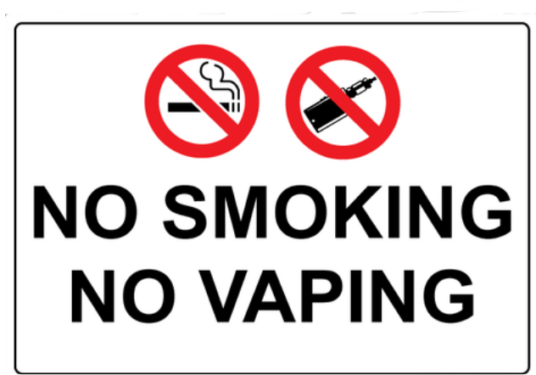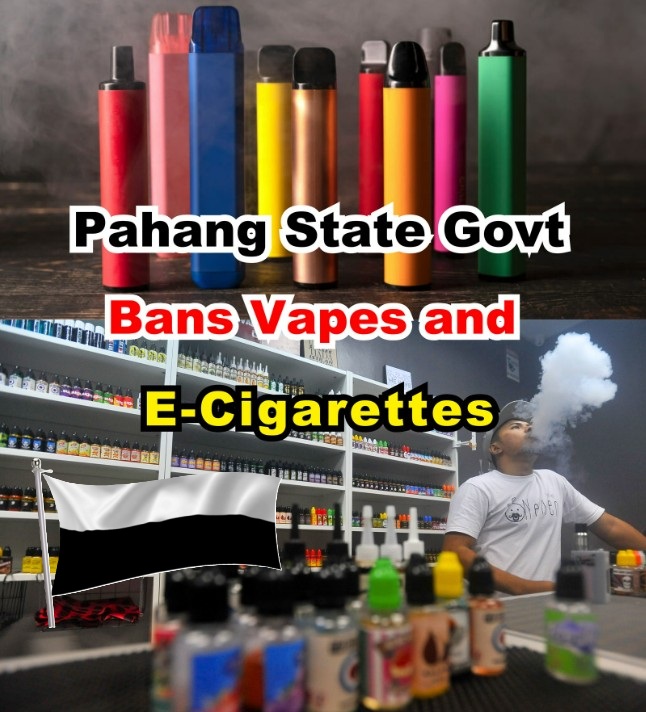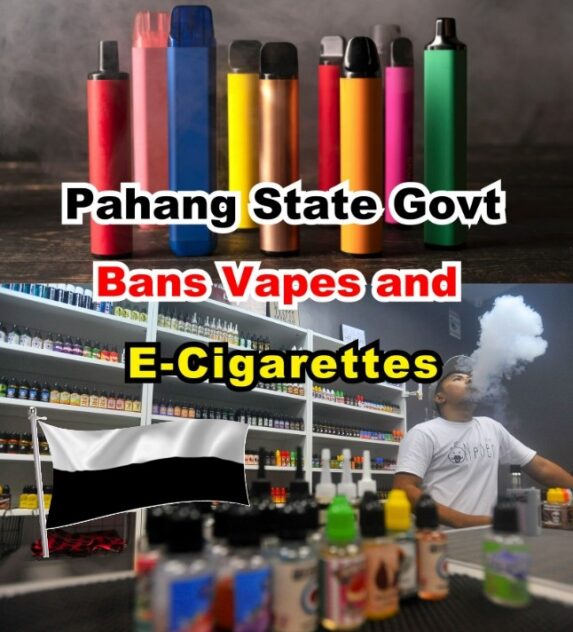AS Pahang becomes the latest Malaysian state to announce a ban on vape products, industry and consumer representatives are calling for a more balanced approach.
They are urging the relevant authorities to focus on enforcing existing federal regulations under the Control of Smoking Products for Public Health Act 2024 (Act 852) instead of implementing blanket bans that risk worsening public health and safety.
The Malaysian Vape Chamber of Commerce (MVCC) and the Consumer Choice Centre (CCC) Malaysia have both voiced serious concern over the growing trend of state-level vape bans.
Both warned that such measures will not eliminate vaping but will instead push the activity underground, benefiting black market operators and endangering consumers.
“The vape industry in Malaysia is not a fringe sector. It is a legitimate, regulated industry that contributes significantly to the economy,” the Malaysian Vape Chamber of Commerce (MVCC) secretary-general Ridhwan Rosli told FocusM.

“According to the Malaysian Vape Industry Study 2023, the industry was valued at RM3.48 bil, employing 31,500 workers and supported by 7,500 general retail shops and 2,500 specialty vape shops.
“These are real jobs, real businesses and real livelihoods that are now at risk because of these state bans.”
Lacking enforcement
Instead of banning vape products outright, Ridhwan urged state governments to work with the federal government to enforce Act 852 which provides a clear framework to regulate the sale, marketing and manufacturing of vape products in Malaysia.
“Vape retailers have already submitted the necessary documentation to the Health Ministry (MOH) to comply with product registration and price approval requirements with approvals expected anytime now,” he lamented.
“This clearly shows that legal industry players are ready and fully supportive of Act 852. We should be focusing on rolling out and enforcing Act 852 instead of sidelining it through outright bans.”

Ridhwan further expressed concern that enforcement has not yet caught up with the law despite legal industry players being fully prepared to comply with Act 852.
“In fact, we’ve been pushing for these regulations for years because we believe in responsible business practices,” he justified.
“But when bans are imposed, it punishes the compliant legal players and creates a vacuum that illegal and unregulated vendors will quickly fill.
“The bad actors are the ones operating in the shadows to distribute vape products containing illicit substances. A ban won’t stop them; it will just give them more customers.”
Harm reduction compromised
Echoing similar concerns, the Consumer Choice Centre (CCC) has also highlighted the dangers of pushing consumers to the black market.
“When state governments ban access to legal, regulated products, consumers don’t stop using them but they simply lose the protection of safety standards and quality control,” opined CCC’s Malaysia country associate Tarmizi Anuwar.
“The black market becomes the only option, and that’s where real harm begins. Products with unknown ingredients, unregulated nicotine levels and dangerous additives become widespread. That’s a far greater risk to public health.”

Tarmizi went on to urge Malaysia to focus on harm reduction as a central public health strategy.
“Millions of Malaysians are still smoking cigarettes when vape has been a proven tool to help many of them transition away from combustible tobacco. By banning vape, we risk reversing that progress by driving smokers back to far more harmful products,” he warned.
He also stressed the need for both the federal and state authorities to work together to ensure Act 852 is effectively enforced, particularly at retail points of sale through proper licensing, age verification mechanisms and routine inspections.
“If states truly want to protect public health, they must regulate – not prohibit. Enforcement is key, not prohibition.”
With Johor and Kelantan having had long-standing bans in place since 2016, and now Terengganu and Perlis set to implement similar prohibitions from Aug 1 1, MVCC and CCC warn that Malaysia risks creating a fragmented regulatory landscape that undermines national policy coherence.
“We urge state governments to re-consider,” reasoned Tarmizi. “Let’s give the new regulations under Act 852 a chance to work.
“Let’s strengthen enforcement, crack down on the black market and support responsible businesses that are committed to harm reduction. Bans may seem like an easy fix but they will only create bigger problems down the road.” – June 16, 2025









